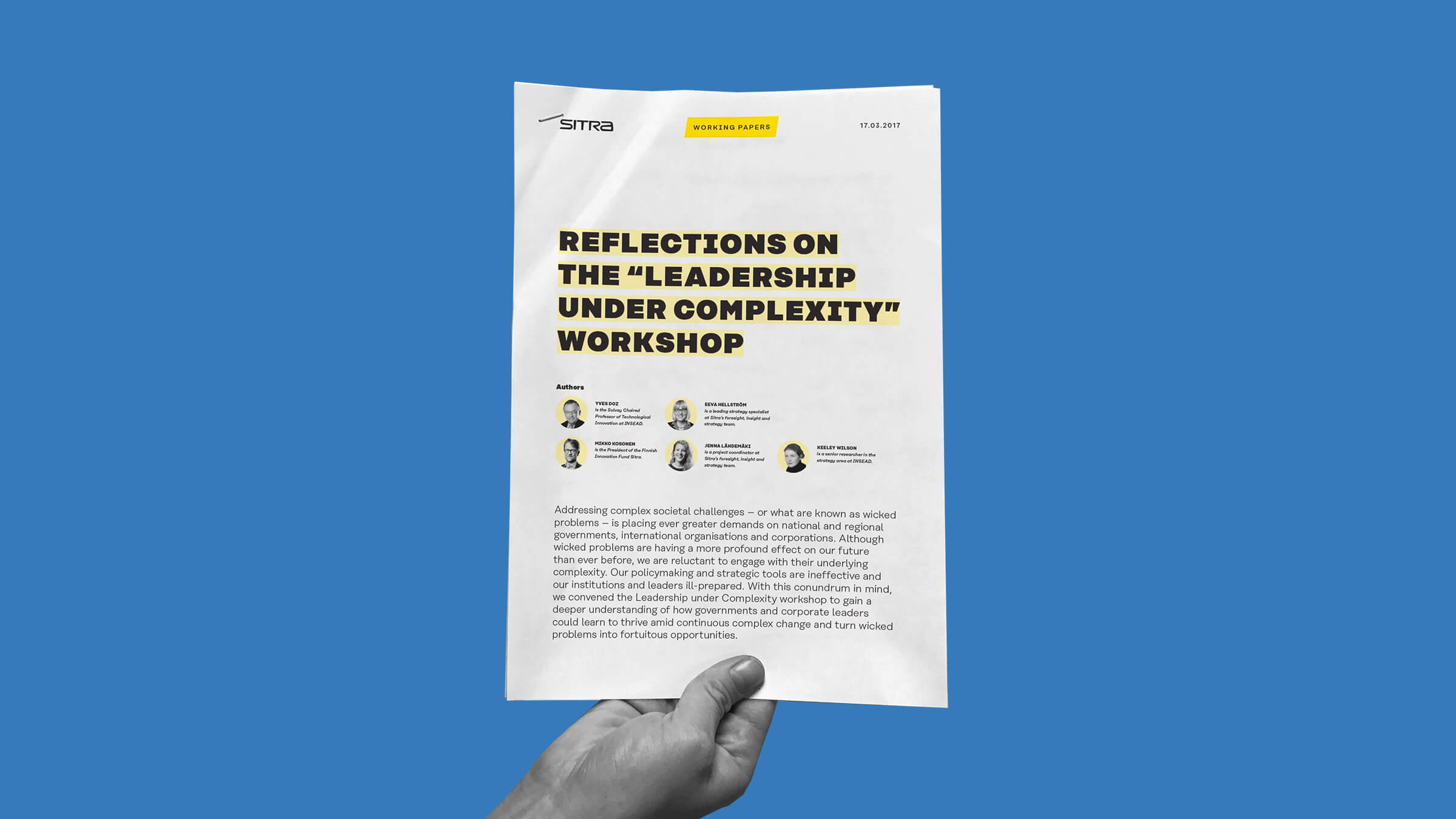The most severe challenges we currently face, such as global warming, health and well-being, the very survival of democracy and the rise of militant and violent extremism, are all subject to high complexity. Our ability to address these fundamental wicked problems successfully is crucial for longer-term success and even the future of humankind. Sadly, our policymaking and strategic tools are ineffective and our institutions and leaders ill-prepared.
So what should we change in the way we lead and run our organisations, governments and companies to be able to take on these challenges?
In a workshop of 29 leadership experts held at Sitra a few months ago, a few key traits of a good leader were highlighted.
11 traits of a good leader in a complex world
- Emphasising listening
- Enabling risk taking and experimenting
- Providing context by framing and reframing wicked problems as they become better understood
- Working externally, and engaging laterally, across organisations and parties to a problem
- Being multidisciplinary and putting process skills above substantive specialist skills
- Developing multicultural sensitivity (for example, by involving those who have lived in multiple countries and/or worked in both public and private organisations)
- Embracing ambiguity and suspending judgement rather than rushing into conclusions and actions
- Reinforcing principles of fairness and being explicit and transparent about them
- Absorbing some of the external uncertainty that might otherwise paralyse action initiatives locally
- Relying on communities, delegating and accepting self-structuring teams
- Questioning rules, challenging them and not letting them mature into rigidities
Even though it is difficult to isolate leadership “traits” specific to complexity, identifying and understanding which leadership behaviours are most effective when addressing wicked problems is crucial.
It is also given that complex challenges are by nature impossible to solve in one go, and are therefore very hard to address. And yet, in the face of these seemingly intractable problems, policymakers, government ministries and agencies, corporations and non-governmental institutions need to learn how to handle complexity.
Interested in finding out more? Read our full reflections on the “Leadership under Complexity” workshop here.




Recommended
Dive in deeper.